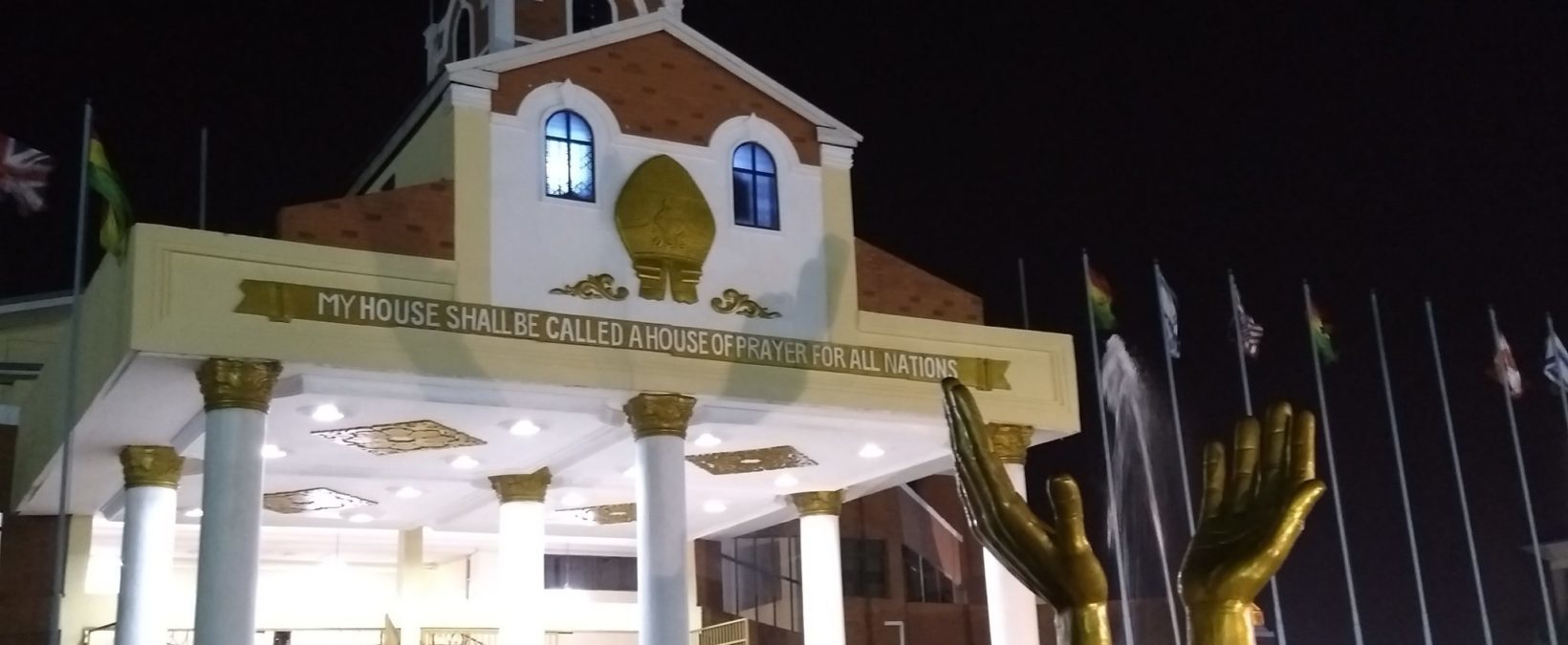
Sexuality, stigma and religion: the negotiation of sexuality and religion among sexual minorities in Ghana
Även om många traditionella religiösa diskurser stigmatiserar homosexualitet och upprätthåller heteronormativa synsätt finner människor som hör till sexuella minoriteter också styrka och motstådskraft i religionen. Inom ramen för den religionsvetenskapliga spetsenheten YARG vid Åbo Akademi forskar Marlijn Meijer i sexuella minoriteter och religion i Ghana. År 2020 mottog hon ett doktorandstipendium från Donnerska institutet för sin forskning.
In research on religion and sexuality, dominant and popular academic discourses are often “sex-negative” (Yip and Page 2016). Religious views concerning sexuality are presented as conservative and constraining, particularly in relation to homosexuality. In contrast, secular spaces are often seen as progressive and supportive of sexuality, homosexuality and queer people. However, in the everyday lives of religious sexual minorities this dichotomy is too simplistic and does not capture the multiple ways in which sexuality and religion can intersect.
Despite the fact that there are religious discourses that stigmatize homosexuality and non-heteronormativity, there is a great deal of resistance and empowerment to be found among religious sexual minorities. This study aims to highlight the experiences of sexual minorities in Ghana, assess levels and forms of stigma and analyze ways of empowerment and resistance. By doing this, the study attempts to increase the awareness of the stigma experienced by sexual minorities in Ghana and to highlight different forms of resistance and empowerment present among religious sexual minorities.
While the effect of stigma on sexual minorities has been widely studied, there are only a few studies that focus on religiosity and stigma among sexual minorities: especially in the Global South. In contrast to most Western countries, Ghana has one of the highest percentages of religiously affiliated populations globally. Religion is part of everyday life. Almost everyone grows up belonging to a religious community. Even though there is a high level of stigma in Ghana related to homosexuality and non-heteronormativity – a stigma deeply rooted in religious institutions – there are also many grass-root organizations, which aim to support sexual minorities in different ways, for instance inclusive religious communities.
Before my fieldwork started in the fall of 2017, I contacted Sadiq Yussif, the former director of Solace Initiative in Accra. Solace Initiative is a local non-governmental organization working for the promotion and protection of human rights, specifically the rights of LGBTQ+ people in Ghana. I met Yussif in Accra and explained the aims of my study. He was interested in the project since there is not much research done on these topics. Yussif himself was an openly gay Muslim and a widely respected person in queer organizations in West-Africa. The study was relevant to him, as he was trying to organize meetings with religious leaders to have constructive discussions on the rights and needs of queer individuals and to counter stigmatizing beliefs. The study could provide essential observations on stigmatizing experiences and ways of empowerment among sexual minorities. A week after my first visit in Accra, Yussif tragically passed away due to illness. My study continued with Solace Initiative with the help of the project manager, who told me that the agreement with Yussif would not be broken. During the fieldwork in the spring of 2018, I realized how important Yussif had been to the community. I began thinking about how to analyze and use the material I had gathered in a way that was also useful for the community. My central focus became the experiences shared by the participants in my study.
Thirty-one young adults who identified as sexual minorities participated in the study. The gathered material includes a survey, the Faith Q-Sort and semi-structured interviews focusing on religion, sexuality, change and stigma. The Faith Q-Sort is a new method for analyzing religious positions and subjectivities. The method was originally developed by Professor David Wulff (2019) and further developed by the project ‘Young Adults and Religion in a Global Perspective’ (YARG), led by Professor Peter Nynäs, in collaboration with Wulff. The Faith Q-Sort is based on Q-methodology (see Watts and Stenner 2005).
In this study, the Faith Q-Sort was used as a tool to open up the interviews and to highlight key experiences of the participants in relation to religion and sexuality. In addition, the analysis of the thirty-one Faith Q-Sets identified five religious positions among the participants. These five positions provide a new perspective on sexual minorities and their diverse relationships to their faith or religious background. These categories go beyond the popular academic discourse of sex-negativity and provide nuanced views on non-normative gender identities, sexuality and religion.
This study aims to increase the awareness of stigmatization experienced by sexual minorities in Ghana in a way that goes beyond just academic interests. On the one hand, the study demonstrates the lack of support provided by many religious institutions and leaders. On the other hand, it aims to illustrate the possibilities of support and collaborations with queer communities, the importance of inclusive religious communities and how these communities can empower sexual minorities in Ghana and beyond.
Marlijn Meijer is a doctoral candidate at the department Study of Religions at Åbo Akademi University in Finland. Her study explores how Ghanaian young adults identifying as sexual minorities negotiate their sexuality and religious identity in everyday life. Her research is part of the Doctoral Training Network for Minority Research and the international research project Young Adults and Religion in a Global Perspective led by Professor Peter Nynäs.
References
Solace Initiative, https://solaceinitiative.org/
Watts, S., & Stenner, P. (2005). Doing Q methodology: theory, method and interpretation. Qualitative research in psychology, 2(1), 67-91.
Wulff, D. M. (2019). Prototypes of Faith: Findings with the Faith Q‐Sort. Journal for the Scientific Study of Religion, 58(3), 643-665.
Yip, A. K. T., & Page, S. J. (2016). Religious and sexual identities: A multi-faith exploration of young adults. Routledge.